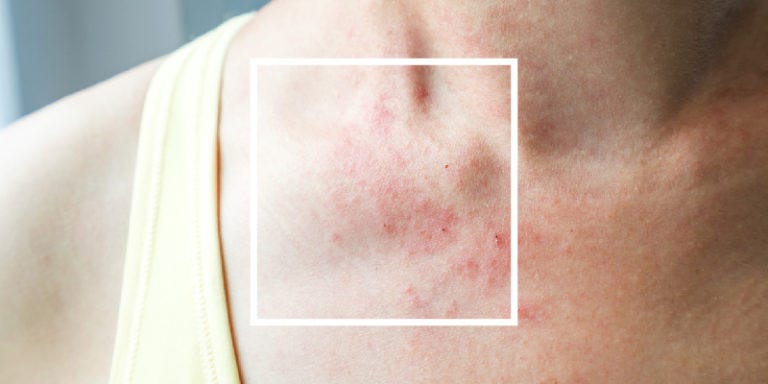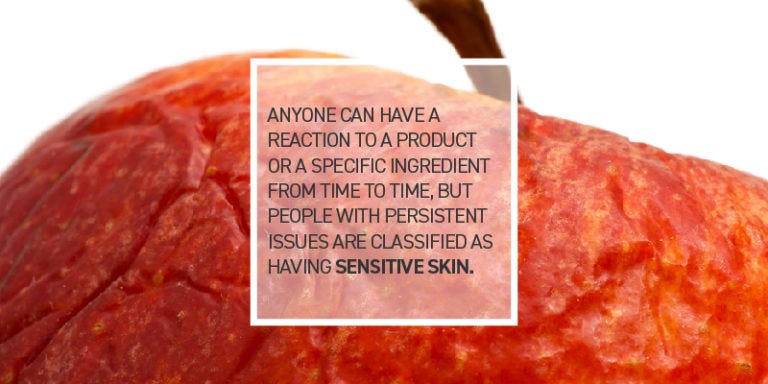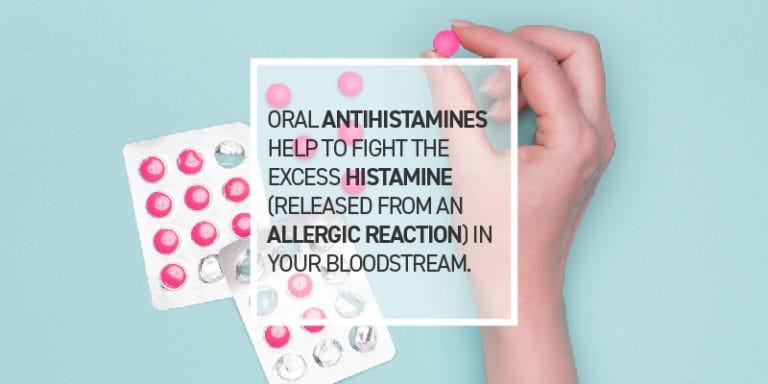Skincare Tips from MDSUN Skin Care®

There is not much in this world that is more uncomfortable than having to deal with itchy, dry, or irritated skin. Even the short-lived annoyance of a mosquito bite can drive you to the brink of insanity.
But when your skin is constantly under threat of breaking out or diving into a rash, you live your life in fear, trying to avoid anything that may trigger another reaction or uncomfortable attack.
What Constitutes Sensitive Skin?

Anyone can have a reaction to a product or a specific ingredient from time to time, but people with persistent issues are classified as having sensitive skin. It refers to a range of conditions from ailments like rosacea and eczema to severe allergies. According to the American Academy of Dermatology, it affects millions of people.
How Do I Know If I Have Sensitive Skin?

There are a series of annoying problems that can arise if you have sensitive skin. If you’re noticing any of these signs, you may want to dig deeper (not by scratching, though!). There are ways to alleviate some of your discomforts if you know what you’re dealing with.
- Your Skin Is Reactive: Certain things that you encounter on a daily basis may cause your skin to go into reactive overdrive. Some common triggers you may run into include: soaps, fragrances, skincare products, detergents, perfumes, or household products. Other natural forces may also send your skin into a tizzy like exposure to cold, wind, or sun.
- Your Skin Is Itchy: Your skin often feels itchy and too tight, like it doesn’t fit. This can be especially true after cleansing with products are too harsh, or using hot water. You especially tend to want to scratch more when it’s cold and dry.
- Your Skin Is Dry: It’s tough to say which came first: the dryness or the sensitivity. People with sensitivity are often dry, and dry skin doesn’t protect your touchy nerve endings very well, making them sensitive.
- You’re Prone To Breakouts: Your skin may breakout in episodes that look like acne, yet acne products designed to combat the problem only make you feel worse.
- The Sun Is Not Your Friend: Sensitive skin makes you more susceptible to the sun’s harmful effects, especially if you’re already in irritated mode and peeling.
- You Suffer Redness: People with sensitive skin usually deal with some amount of redness in the form of a rash, bumps, blushing, flushing, or red dilated blood vessels (telangiectasias). It will usually go away when you remove the irritant, or with minor treatment, but sometimes it can persist.
- You Feel Stinging and Burning: This may be especially true when you apply products that are too strong for your skin.
- You Have Rashes, Often: You may get dry, flaky, red, bumpy rashes that develop quickly with certain triggers.
- Your Skin Flakes and Peels: This is particularly true if your skin is dry. It often looks like dandruff.
What To Do About Sensitive Skin
Joshua Zeichner, MD, Assistant Professor of Dermatology at The Mount Sinai Hospital in New York City, claims that ¾ of his patients claim to have sensitive skin, “and treating skin too aggressively is one main reason why.” You could be overwhelming your skin and not even know it, since the average woman uses 12 different products with 168 unique ingredients every day, according to the Environmental Working Group in Washington D.C. Couple that with everything else your skin is forced to deal with: pollution, hormonal changes, emotional stress. It’s no big surprise that your skin wants to break out and develop strange symptoms.

While you can’t always completely avoid awakening your skin’s sensitivity, you can follow these steps to make sure that you keep your skin as happy as possible.
- Pay attention to what you eat. Spicy foods can exacerbate redness, but “eating foods rich in probiotics — such as yogurt with live cultures — can prevent skin sensitivity, redness, and itching by blocking the release of inflammation-causing chemicals,” says Whitney Bowe, MD, a dermatologist in New York City.
Sugary foods have been linked to inflammation, so they are to be avoided if you are prone to allergic reactions.
- Take care with your routine, especially if you have dry skin. Opt for a gentle, soap-free cleanser, and keep your routine simple. Steer clear of toners, astringents, and any other products that contain alcohol. Avoid harsh exfoliants, which can worsen the problem.
What you do want to do is choose your products carefully. Read your ingredients lists and utilize a good quality lineup designed to be gentle and delicate on your skin, containing anti-allergenic, anti-inflammatory, and anti-irritation ingredients.
Layer on a super hydrating cream that has ceramides, a peptide complex, and niacinamide. Karen Kim, MD, a dermatologist in Chestnut Hill, Massachusetts advises to be generous with your application. “I tell my patients with dryness to apply emollients two or three times a day,” she says.
- Listen to your skin. Take note when it reacts so you can figure out what could have triggered it. Know what products or cleaning agents you should avoid in the future. A good bet is to avoid fragrances and perfumes. Learn what cleaning products are sensitive skin friendly.
- Try topical products for instant relief of symptoms. Topical antihistamines help to relieve itching and reduce inflammation for allergies, and hydrocortisone cream can do the same for contact dermatitis. A cool oatmeal bath can soothe burning skin.
- Oral antihistamines help to fight the excess histamine (released from an allergic reaction) in your bloodstream.
Skin Care Tips From MDSUN Skin Care®
Please Visit Our Official Website - MDSUN Skin Care




Comments
Post a Comment